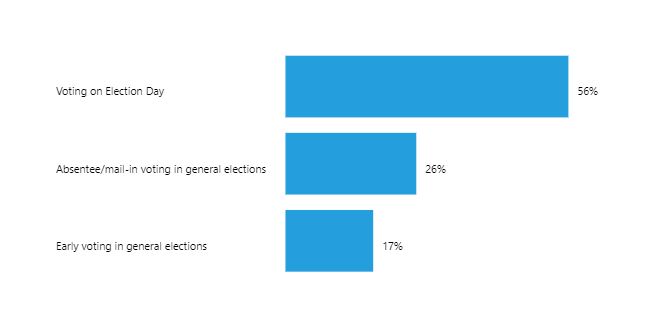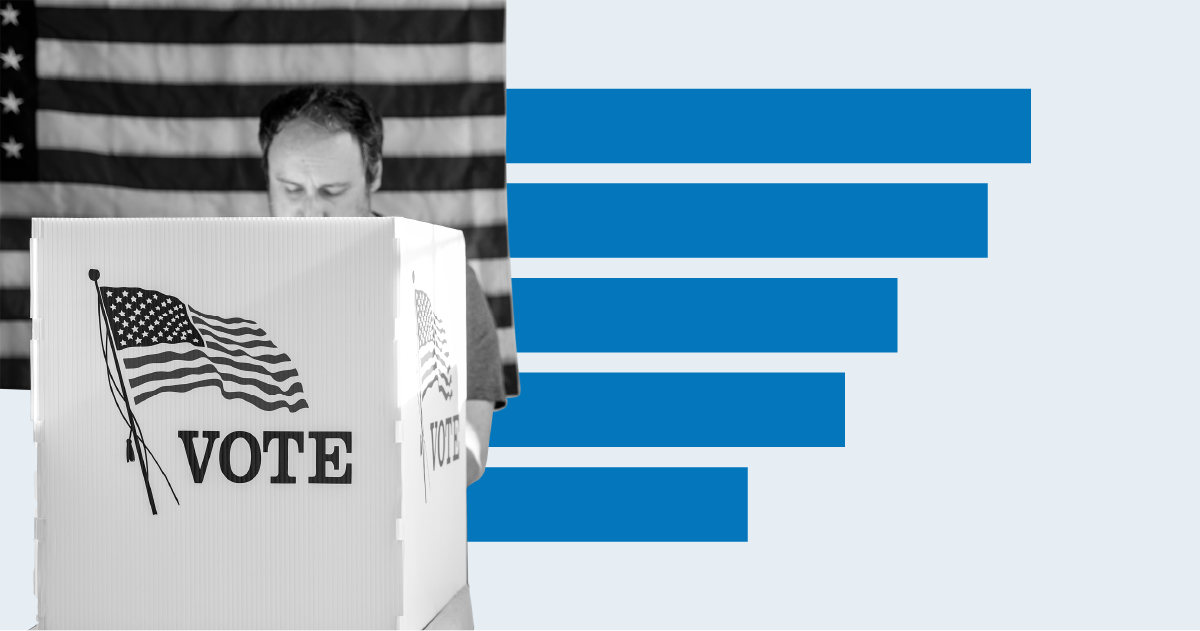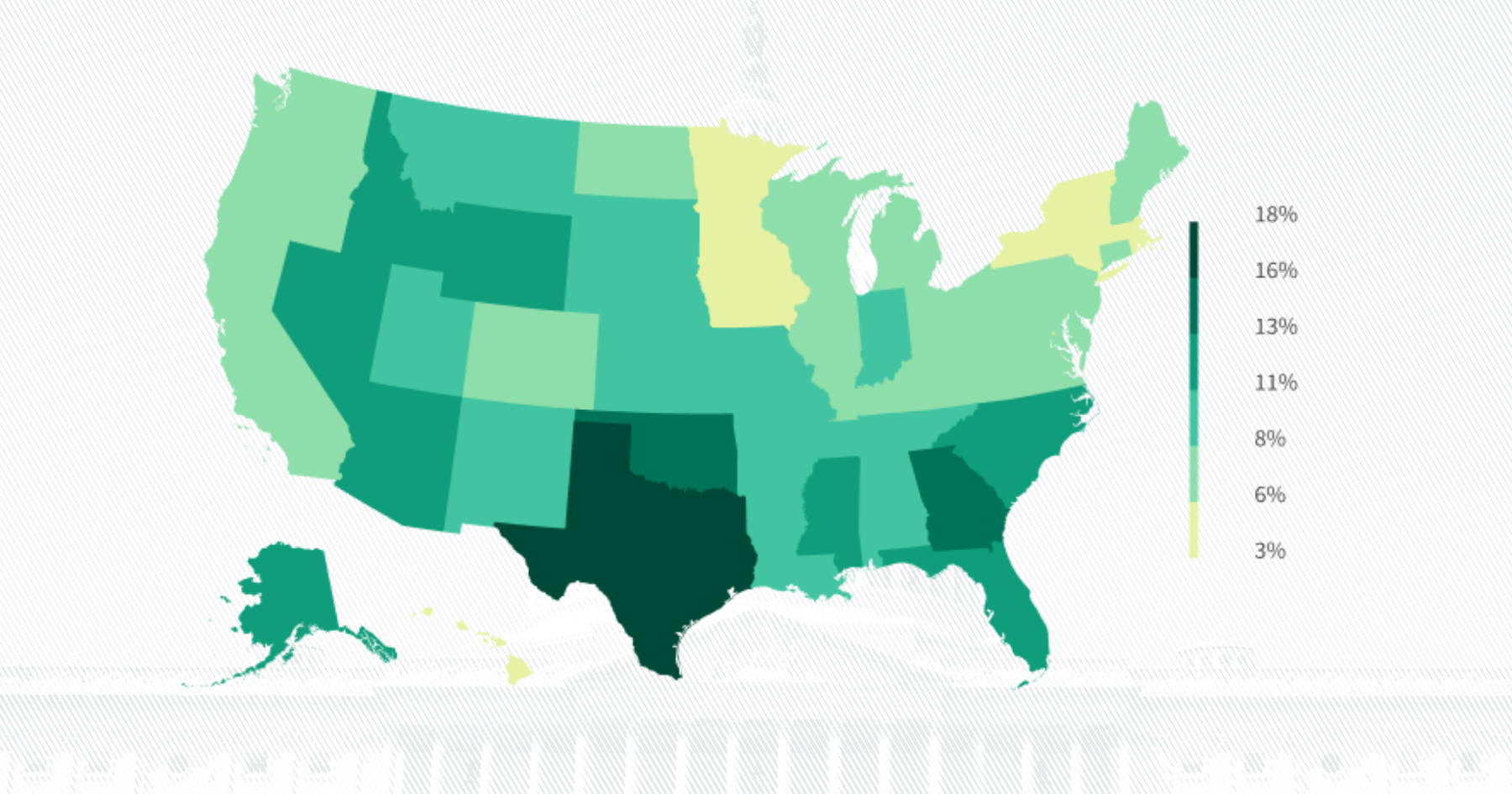Government
How does voter turnout in the US change by state, age and race?

Eighty-three percent of Americans say the spread of misinformation is a major problem. Daily use of social media as a source of information on the government is down 31% since 2019. A quarter of Americans have difficulty understanding fact and opinion with respect to the election.
Those are some of the findings from the 2020 State of the Facts poll. Each year, USAFacts conducts a poll to assess how Americans feel about facts, data, and where that data is sourced. The resulting report, called the State of the Facts poll, provides insights into how Americans agree and disagree on data.
Forty-eight percent of Americans say they are closely paying attention to the presidential election. Political leanings show some differences, with 58% of Democrat-leaning voters saying they are closely following the election compared with 47% of those who are Republican-leaning.
When it comes to the election, respondents said it was easier to find information about the voting process than facts about candidates. Forty percent of respondents said it was difficult to find such information about whether candidates are telling the truth, while 35% of respondents say it’s easy to find such information. Sixty-one percent of respondents say it is easy to find information about how to cast ballots, while 68% also found it easy to find voter registration information.
Political leanings also trend with whether respondents think a statement or action is based on facts. For example, 7% of Democrat-leaning respondents say Democratic presidential candidate Joe Biden’s campaign messages are rarely or never based on fact, compared with 71% of Republican-leaning respondents. On the other end, 86% of Democrat-leaning respondents say that President Donald Trump’s campaign messages are rarely or never based on fact, compared with 24% of Republican-leaning respondents.
Respondents have varying criteria on what leads them to consider information as factual. Sixty-six percent said if information is based in data, then it is considered factual. That is up from 61% in the 2019 version of the poll. If information is verified by the media, 18% of respondents say that would likely consider that information factual.
Eighty-five percent of respondents also say accuracy is an important factor in considering information factual, compared with 21% who said it is important that they agree with the information.
Americans are also getting information about the government from a variety of sources. Daily use of social media for such information decreased to 37% from 54% in 2019.
The 2020 State of the Facts poll, conducted with The Associated Press-NORC Center for Public Affairs Research between Sept. 15 and Sept. 25, featured about the 2020 election and broader questions about information, sources and trust. There were also several questions related to the COVID-19 pandemic.
Download a presentation of this data and get the facts every week by signing up for our newsletter.
This nationwide poll was conducted by The AP-NORC Center for Public Affairs Research and funded by USAFacts.
AP-NORC polled 1,043 adults (966 via the web and 77 via telephone) between September 15-25 using the AmeriSpeak Panel®, AmeriSpeak is NORC’s probability-based panel designed to be representative of all US households.
Interviews were conducted in English and Spanish.
Margin of error is +/- 4.1 percentage points.
Complete topline and methodology available at www.apnorc.org.
Government
Government
Government
Government
Newsletter
Keep up with the latest data and most popular content.


